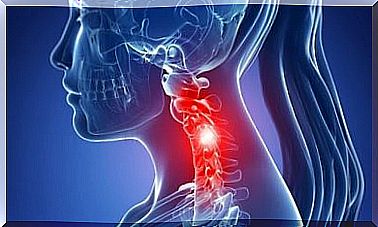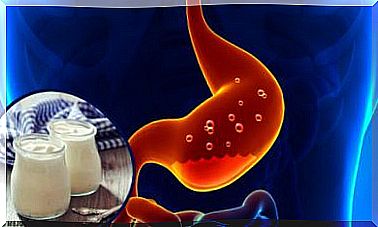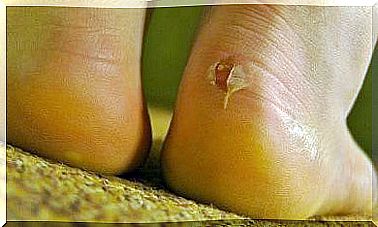The Consequences Of Too Low Calcium

Too low calcium is a nutritional deficit that adversely affects a person’s health. Calcium is one of the most abundant minerals in the human body and it is important to ensure its supply from food on a regular and sustained basis to avoid suffering the consequences of too low calcium.
Fortunately, many of the products you eat in your diet contain calcium. Maintaining a varied diet ensures that you get enough of it, although vitamin D is also important to ensure its absorption.
Although it is found in large quantities in nature, some people still suffer from too low calcium, so we will tell you what the consequences are and why it is important to keep an eye on its intake. It is especially important during menopause.
Too low calcium leads to osteoporosis
Osteoporosis is a common disease among menopausal women. It causes a gradual demineralization of the bones, which increases the risk of bone fractures, affecting the lifestyle of those who suffer from it.
Once the disease has begun to develop, it is difficult to improve it, so prevention is key. Drugs and treatments are available to try to stop the damage already caused, but bone replacement is almost impossible.
Too low calcium in adults is a potential risk factor for increased likelihood of osteoporosis. This is confirmed by research published in the journal Maturitas, where a proper intake of minerals is associated with a reduction in the effect of this disorder.
In any case, it is essential to control the intake of this nutrient so as not to get too much. Excessive increase in intake leads to the risk of kidney stones. Therefore, the daily dose should not exceed 2000 milligrams.
In addition to calcium intake , frequent exposure to sunlight or supervised use of vitamin D supplements is recommended. This micronutrient takes part in the uptake of minerals and the conversion into bones.
Administration of both substances together helps reduce the risk of bone fractures in adults, as described in a study published in Osteoporosis International.
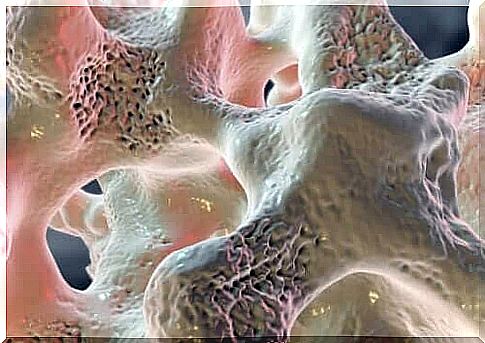
Osteoporosis is common in menopausal women and it is therefore important to increase calcium intake.
Low levels of calcium in athletes
Calcium is not only an important nutrient for inactive people. It is also especially important for an athlete.
In addition to ensuring a balance of electrolytes, maintaining adequate levels of calcium in the body can also reduce the risk of suffering from muscle cramps. It has even been considered that supplements of this mineral can help reduce leg cramps in pregnant women.
However, recent research published in the Journal of Research in Medicinal Sciences has found no obvious link. The suspicion stems from the effect of calcium in cellular metabolism, both from neurons and myocytes (muscle cells).
Calcium takes part in the transmission of nerve impulses. Excessive loss of this mineral in athletes, through sweat, can affect the ability of the muscles to contract and the performance in sports.
It is therefore important to ensure the maintenance of a balance of electrolytes by consuming fluids rich in minerals when exercising, especially in high temperature situations.
Consequences of too low calcium: Seizures
Another symptom of too low calcium in the diet is muscle cramps. It is just a series of tensions in the muscles that are visible under the skin.
They are spontaneous and involuntary. They are not harmful to the body, and if you experience them, you do not have to worry.
If the symptom is recurrent, and in special cases, a conversation with the doctor is rarely necessary. However, for example, in pregnant women or people with high blood pressure , seizures can hide a major underlying problem, which is about blood circulation. It is not acute, but blood tests can be used to study it.
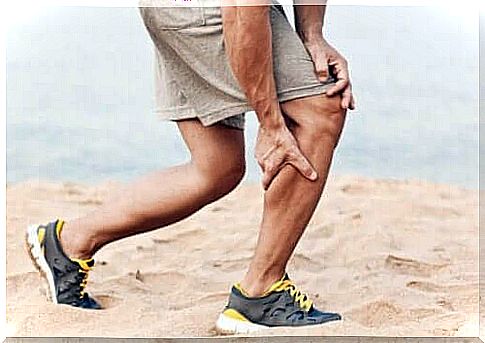
Lack of calcium can cause seizures, especially in athletes.
Prevention of hypercalcemia
To prevent these situations, it is important to adjust the amount of calcium in your diet. An effective strategy is to frequently include nuts, green leafy vegetables and dairy products in your diet.
It is important to keep in mind the importance of maintaining adequate amounts of vitamin D to improve the uptake of minerals. Optimizing the production of this substance involves frequent and safe exposure to sunlight. It is also important to enrich your diet with fatty fish, eggs and fortified dairy products.
In case of suspicion of too low vitamin D, one should talk to a specialist, it can assess the need for supplements. This situation can lead to an increased risk of diseases in the medium and long term.
Too low calcium and long-term complications
One of the primary complications of too low calcium is osteoporosis. Although women are more likely to develop this disease, men can also be diagnosed.
To reduce one’s risk, it is important to include foods rich in calcium in one’s diet as well as to keep an eye on one’s levels of vitamin D. A good solution to avoid this disease is by including vegetables and dairy products in its diet.

